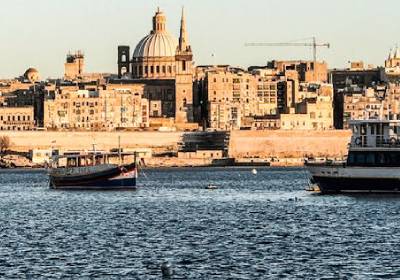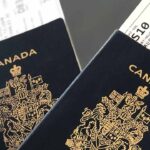Banks in Malta are closely monitored by the Malta Financial Services Authority (MFSA). They offer a range of services for both local and international clients, including retail, private, crypto-friendly, and offshore banking options.
This article will guide you through the banking system in Malta, including a list of all 21 banks in Malta, average interest rates, and process of opening a bank account as a y a resident or a non-resident.
This is what we will cover:
Banking System in Malta

The banking system follows important laws which include:
- Banking Act of 1994, which sets up the rules for how banks operate in Malta.
- The EU Capital Requirements Directive (CRD IV) makes sure banks follow Basel III standards to maintain strong capital.
- The Financial Institutions Act regulates companies that provide services like payments but are not banks.
Types of Banks in Malta
Malta’s banking system is made up of different types of banks, including:
- Retail banks offer general services to people, such as savings accounts, loans, and mortgages.
- Private banks focus on high-net-worth individuals, and provide personalized wealth management and investment services.
- Corporate banks provide banking services to businesses, including trade finance and corporate loans.
- International banks offer cross-border banking services and support international clients.
21 Best Banks in Malta
No. | Bank | Specialization | Location |
1 | Bank of Valletta (BOV) | Malta's largest bank offering retail, business, and corporate banking services. | Valletta, Birkirkara, Sliema |
2 | HSBC Malta | A subsidiary of HSBC Group, providing retail, corporate banking, and wealth management. | Valletta, Sliema, Birkirkara |
3 | APS Bank | Focuses on retail banking, savings, loans, and mortgages with a community-based approach. | Paola, Birkirkara, Marsa |
4 | BNF Bank | Offers retail banking, loans, mortgages, and investment services. | Birkirkara, Sliema |
5 | Sparkasse Bank Malta | Specializes in private banking, wealth management, and investment services. | Floriana, Valletta |
6 | FIMBank | Focuses on trade finance, factoring, and letters of credit for businesses. | Valletta |
7 | Mediterranean Bank | Offers savings accounts, loans, and personal banking with an emphasis on digital services. | Floriana, Valletta |
8 | Credit Europe Bank | A subsidiary of Fiba Group, providing corporate banking and financing solutions. | Valletta |
9 | Banif Bank | Offers retail banking services, including savings, loans, and mortgages. | Birkirkara |
10 | Lombard Bank | Focuses on personal banking, business banking, and specialized financial services. | Valletta |
11 | MeDirect Bank | Specializes in online banking and investment services for individuals and businesses. | Valletta |
12 | MSV Life | Life insurance provider, focusing on savings and investment products. | Valletta |
13 | International Bank of Malta | Provides retail and corporate banking services with a focus on international transactions. | Valletta |
14 | Fiduciaire Bank | Specialized in investment and private banking services. | Valletta |
15 | RBC Royal Bank of Canada Malta | Offers corporate banking and wealth management services to international clients. | Valletta |
16 | Alfa Bank Malta | Focuses on corporate banking and trade finance solutions. | Valletta |
17 | Valletta Fund Management | Specializes in wealth management and investment funds. | Valletta |
28 | Capital Bank International | Provides international banking, wealth management, and investment solutions. | Valletta |
19 | CIMB Malta | Specializes in investment banking and financing for businesses. | Valletta |
20 | Bank of China Malta | Offers banking services for individuals and businesses with a focus on trade and corporate banking. | Valletta |
21 | AIB Malta | Specializes in retail and corporate banking with a focus on international trade and investment. | Valletta, Sliema |
International and Offshore Banks in Malta
In Malta, international and offshore banks mainly serve businesses, foreign companies, and people who need help with international transactions, investments, and other financial services that go beyond regular banking. These banks follow special rules to provide. global services while making sure they follow Malta’s regulations.
Non-residents usually use offshore banks to manage assets, international investments, and other specialized financial services. These banks include:
- Bank of China Malta
- RBC Royal Bank of Canada Malta
- FIMBank
- Credit Europe Bank
Crypto-Friendly Banks in Malta

These are crypto-friendly banks in Malta:
- FIMBank
- Bank of Valletta (BOV)
- APS Bank
- HSBC Malta
- Sparkasse Bank Malta
- Mediterranean Bank
Interest rates in Malta
Type of Loan/Account | Interest Rates |
Savings Accounts | 0.05% to 2% per year, depending on the bank and account type |
Loans (Personal, Car, etc.) | 4% to 8% per year, depending on the loan type and borrower’s profile |
Mortgages (Home Loans) | 2% to 3.5% per year, depending on the specific deal or loan provider |
Business Loans | 3% to 6% per year, depending on the loan type and business’s credit profile |
How to Open a Bank Account in Malta
In Malta, both residents and non-residents can open a bank account, but the steps and documents needed may be different. Here’s a simple guide for each:
For residents
- Choose a bank: Research different banks to find the one that suits your needs, e.g., retail banking, savings accounts, online banking.
- Visit the bank: You’ll need to visit a bank branch in person to open an account. Most banks will have specific branches that deal with new account openings but some also allow you to open a bank account online.
- Provide identification and address proof such as, a passport or ID card (for EU residents), proof of address which could be a utility bill or a rental agreement and a Tax Identification Number (TIN), if applicable.
- Complete the application: Fill out the necessary forms provided by the bank for opening an account. Depending on the bank, you may also be asked to provide a letter of employment or proof of income.
- Deposit funds: Some banks may require an initial deposit which varies from bank to bank. It is a small amount between €100 to €200.
- Wait for account activation: After your documents and deposit are verified, the bank will process your account application. Once the account is activated, you will receive a debit card and account details.
For non residents
The process of opening a bank account for non residents is similar, with only a few different things. Non- residents require a few more documents than residents like a reference letter from your home bank or a statement from your current bank. Non-residents may also be asked to make a higher initial deposit, which could range from €500 to €1,000.
Opening a personal account vs a corporate account in Malta
Aspect | Personal Bank Account | Corporate Bank Account |
Who Can Open | Individuals (residents & non-residents) | Businesses registered in Malta or abroad |
Purpose | Personal use, savings, salary deposits, everyday transactions | Business transactions, payroll, and corporate expenses |
Required Documents | Passport/ID, proof of address, proof of income, Tax Identification Number (TIN) | Company registration documents, director & shareholder IDs, proof of business activities, TIN |
Deposit Required | Low (€100 - €500) | Higher (€1,000 - €5,000), varies by bank |
Compliance Checks | Basic Know Your Customer (KYC) checks | Strict KYC & Anti-Money Laundering (AML) verification |
Approval Time | A few days to 2 weeks | Several weeks to months (due to compliance checks) |
Complexity | Simple and straightforward | More complex, requires extensive documentation |
Online Banking Access | Provided by most banks | Provided, but with additional security measures |
How to Get Residency in Malta to Enjoy Banking Services
To access full banking services in Malta, many non-EU citizens apply for permanent residency through Malta’s residency by investment program, also known as the Malta Permanent Residence Programme (MPRP).
The Malta Permanent Residence Program (MPRP) grants permanent residency to those who invest in Malta through real estate, a government contribution, and a charitable donation. Applicants can rent a property for at least €14,000 per year and contribute €60,000 or buy a property worth €375,000 and contribute €30,000, plus a €2,000 donation to a Maltese NGO. The program covers four generations and has no minimum stay requirement.
Another option that leads to residency in Malta is the Malta Digital Nomad Visa. This program lets remote workers live in Malta while working for a company outside the country. To qualify, you must show proof of your job or business, earn at least €42,000 a year, and have health insurance. The residence permit is valid for one year and can be renewed for up to four years.
The Malta Retirement Programme (MRP) also allows beneficiaries to access banking services in Malta. The program offers residency and tax benefits to non-EU retirees who own or rent a qualifying property, have health insurance, and show financial stability. It applies a 15% tax on foreign pension income sent to Malta, with a minimum annual tax of €7,500. While most work is restricted, non-executive roles are allowed. Retirees should spend at least 90 days per year in Malta.
As part of our commitment to providing transparent and reliable services, we are proud to be a licensed agent in Malta, holding the official license number AKM-AGEN. This certification demonstrates our dedication to the highest standards in the investment migration industry and further enhances our ability to offer expert guidance and support to our clients.
How Can Global Citizen Solutions Help You?
Global Citizen Solutions is a boutique migration consultancy firm with years of experience delivering bespoke residence and citizenship by investment solutions for international families. With offices worldwide and an experienced, hands-on team, we have helped hundreds of clients worldwide acquire citizenship, residence visas, or homes while diversifying their portfolios with robust investments.
We guide you from start to finish, taking you beyond your citizenship or residency by investment application.

Frequently Asked Questions about Banks in Malta
Can foreigners open a bank account in Malta?
Yes, both residents and non-residents can open a bank account. Non-residents may need to provide additional documents, such as proof of income and a reference letter from their current bank.
What documents are needed to open a personal bank account?
You need a valid passport or ID, proof of address, proof of income, and sometimes a reference from another bank. Requirements may vary between banks.
Are Maltese banks crypto-friendly?
Some banks in Malta are open to cryptocurrency-related businesses, but most have strict compliance checks. Specialized financial institutions handle crypto transactions instead.
What are the main types of banks in Malta?
Malta has retail banks, private banks, investment banks, and offshore banks, serving both local and international clients.
What is the safest bank in Malta?
Major banks like Bank of Valletta (BOV) and HSBC Malta are considered safe due to their strong regulations and adherence to EU banking standards.
What are typical interest rates in Malta?
Savings accounts offer 0.05% to 2%, personal loans range from 4% to 8%, mortgages fall between 2% to 3.5%, and business loans range from 3% to 6%.
Can a foreign company open a corporate bank account in Malta?
Yes, but companies must provide incorporation documents, proof of business activity, and information on directors and shareholders. Due diligence checks are strict.
Is internet banking available in Malta?
Yes, most banks offer online and mobile banking services, which allow users to manage accounts, make transfers, and pay bills remotely.
How long does it take to open a bank account in Malta?
It can take a few days to a few weeks, depending on the bank, the type of account, and the documents provided. Non-residents may face longer processing times.


